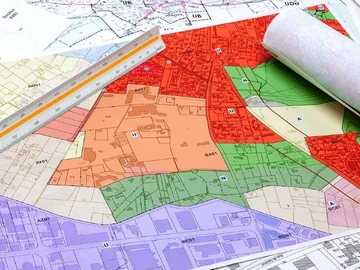Question 1:
A very warm welcome to you. Thank you so much for joining our special program brought to you by Shelter Incorporated. I'm very much excited to be joined by our guest today, the managing director of Shelter Inc., Mr Chester Mhende, thank you so much for taking your time to speak with property.co.zw. To get started, maybe you could tell us a bit about Shelter Inc. and its role in the real estate market.
Response:
CM: Well, thank you very much for having me and I am grateful to property.co.zw for giving us a platform to communicate and connect with the world. Shelter Incorporated has travelled a very long journey from 1983, so mathematically from 1983 to today is 41 years on the road. The road started from very basic requirements where the government of the day felt that there wasn't enough home ownership. So the government came up with a law that empowered homeowners in what we used to call townships and these areas include Glen Norah, Highfield, Glenview, Budiriro and Mufakose. In 1983, all those were owned by the state. So anybody who stayed in these areas, which we now call high density, would pay rentals to the municipality. So every month we used to rent and that covered accommodation, sewer and water reticulation and refuse collection. So the government saw it in their wisdom that people needed to be empowered and facilitating homeownership was part of this initiative. And the simple reason was that an empowered people would be more responsible and accountable thereby also reducing the bill on the local authority. With this initiative, the sitting tenants became the owners and government. There was an overwhelming demand for houses from other tenants who used to share properties. At this point, the late former Minister of Local Government and Housing, John Nkomo decided on expanding the net. But he was clearly faced by challenges of capacity as demand outstripped the available housing stock.
It would be interesting just to take this for a moment, to know that at a certain point in our history, I think it takes me back to my 1985, there were no new houses being built both in the northern and southern suburbs. The renting culture was very much embedded in our psyche. So this imbalance in supply and demand presented an opportunity for employee assisted housing schemes? This entailed the local authorities enlisting respective employees of a company, and allocating land to the employers for subsequent development. Obviously, at the drop of a hat, these could not be accomplished overnight. The initiative came with its own share of challenges and an example is a company called Simon Clothing, which was in the textile industry. Shelter Incorporated put in 23 of our employees on the list to get houses and was bundled with more employers such as ZBC, Turnall, Metro Peech, Edgars and others.
Our collective experience in property development was very limited and we enlisted the services of civil engineers and town planners to get the project off the ground. This project was characterised by several impediments including lack of unity of purpose from the bundled employers. The progress was stifled due to lack of basic requirements such as materials, trucks, graders and the staff enrolled for this project with a view to be the ultimate home owners were lethargic and inconsistent in making subscriptions. With staff defaulting, the syndicate we belonged to was under threat. With several employer syndicates having been set up, some actually failed to weather the challenges and an example is one Order Farm. This was a scheme for financial institutions and it was located along Mbudzi road enroute to Chitungwiza. The project suffered a stillbirth and collapsed. We quickly saw an opportunity and as one of the players, and that's how we created our company. We created the company at the time called Mbare Development because we believed that this was going to go Harare wide and it was going to be a stand-alone business. With the passage of time during a squash game with a friend who had Shelter Incorporated as a shelf company and saw it fit that I assume ownership in light of the nature of business I had embarked into.
Question 2:
We have generally seen growth and development in the property market, what are the trends in the market, particularly in the residential and commercial space?
Response:
CM: Well, the market is fascinating. I always take off my hat to fellow developers and what they come up with and developers such as West Properties keep redefining the boundaries of creativity, design and aesthetics. The trend is to adopt densification and this typically involves building taller structures, such as high-rise buildings or apartments, to accommodate more people in a smaller footprint. So the trends dictate that we become innovative and develop housing solutions that resonate with the evolving taste and preferences of the market.
Question 3:
Yeah, that is true. We are becoming innovative every day. And like you mentioned, the challenges that we're facing in the market, how can we overcome this?
Response:
CM: We have a very interesting economy that is very dynamic and requires one to be flexible and agile in both planning and execution. The menace of land barons continues to rear its ugly head unabated and it's a frustrating experience to the buyer who often times are hood winked of their hard earned cash through clandestine deals. The next problem is capacity constraints. Projects time to market may be delayed because of limited access to materials such as cement and bricks. Shortage of foreign currency for suppliers such as Bitumen Pvt Ltd also affects the development value chain as a proper road network is definitive to the buyer confidence. Additionally, the mortgage market in Zimbabwe is also limited on the market because of macro-economic fundamentals that need further alignment for example, the USD tenure has been pegged to 2030 and this narrative doesn't exactly inspire confidence to the lenders. This turns to inflate the interest rates for mortgages because of the risky nature of lending. As realtors, we have however been making strenuous efforts to adapt to the ever evolving business landscape in Zimbabwe to ensure the wheels keep turning.
Question 4:
Can you elaborate on the services that Shelter Incorporated is offering to its clients?
Response:
CM: Shelter Inc. is made up of three units. The one unit that everybody knows about and talks about is Shelter Zimbabwe. It provides housing for the living and allows one to buy standalone houses, house in a gated estate or flats in a block. We also have two other brands, which is the Etosha Brands being Etosha Memorial and Etosha Gardens. The latter offers accommodation for the afterlife. So accommodation for the afterlife means basically accommodating our deceased what we have traditionally called cemeteries. We decided to call them gardens in order to demystify the fear and misconceptions associated with death.
Question 5:
It sure is a One stop shop. What differentiates Shelter Inc. from the rest of the property companies in the market?
Response:
CM: I guess we are all doing different things. Shelter Inc. has a long history in serviced and titled stands. Over time it has done that on pay scheme and now we are supplying the superstructure, which is the house, the flats, and the like in exactly the same framework where we are doing it on pay plans. People pay a deposit and pay the balance over time. I guess every house has a different way of doing things and I want to believe that what we do in our company is different to our colleagues. But I guess the biggest is the fact that we've been around the globe for a long time. 40 years is not easy and therefore we are a tried and tested institution that can be trusted. We are seeing newcomers, a lot of them are falling flat because they're trying this thing in the next and it's not working. There are a lot of people out there who have lost a lot of money, both at home and in the diaspora. I guess that would be the difference between Shelter Inc. and some of our colleagues. A drive around the cities, the north to the south, east to west will show a number of failed projects and this further asserts how project development is no mean fluke. There are several substandard projects that I believe are short changing the clients.
Question 6:
So what are some of the success stories that Shelter Inc. has achieved?
Response:
CM: Our very first project was at Glenview Two and Three. After this followed a series of projects in Glen View Seven and Railway Reserves. We switched over the location of the next project to Prospect in Waterfalls. Currently, we are working on Apuji which is seven blocks of flats. We also have operations in Adelaide and Rock view, both located in Epworth. The background of Adelaide and Rockview is quite interesting. About eight years ago we were approached by the Epworth Commission to submit a monetisation proposal for the land they owned. The area was predominantly accommodating immigrants from Malawi, Zambia, Mozambique and this population had limited to no capital and the council was hard pressed in raising funds for maintenance and development. We invested in a demographic study and shared our findings with the council to the effect that the population had no ability to formally acquire properties and required a social capital safety net. We made a quid pro quo with the Epworth council which enabled us to get the land we developed Adelaide and Rockview. This allowed the council the ability to collect revenue from the users who had acquired properties. Besides this, we also have Chizhanje stands and its most unfortunate we have a land baron who wants to lay illegal claim to this land. We have approached the courts for a recourse and we are confident the fears the consumers may have will be allayed thereby allowing the full and peaceful occupation of the 1500 stands available. We also have Lendy Park and Winston Paradise in Marondera and are also working on a cluster development in Meyrick Park.
Question 7:
What is the vision of Shelter Inc. in the Zimbabwe property market?
Response:
CM: Real estate is an investment channel of choice to store value in a gilt edged manner. This is quite apparent given the volatility of other investment options including Stocks or Shares. So vision is modernized. Vision is focused on accessibility and affordability. You will notice that Shelter Inc. is not found in the northern suburbs, and that is by design, because it is our view that the need is in the low income and middle income and there is more than we can cope with. We obviously have several deep rooted challenges emanating from an ingrained belief in standalone homes. We continue to engage and educate the market on the shortcomings of this in the context of sustainability. Our vision is therefore encapsulated in a quest to renew the settlements in the low and middle income and middle areas.
Question 8:
You mentioned two important factors: accessibility and affordability. What advice would you give to potential buyers and property investors and what are looking to enter the market?
Response:
CM: Well, the issue of accessibility to me begins to challenge the employer and the individual who is aspiring. They need to challenge themselves to create legacies in real estate, which again is an investment option that keeps giving. They need to take advantage of the pay schemes, in which they pay a deposit and spread the capital balance over time. It’s most unfortunate that building societies in the country are in the ICU as there are limited to no loans being available. In the case of the former the interest rates are exorbitant. The building societies have to reinvent themselves again and start offering core products and services .
Question 9:
What role does technology play in Shelter Incorporated?
Response:
CM: Technology continues to shift the ground beneath our feet and we are trying our best to be up to date. We have immersive and interactive designs that we share online so that people can do a selection of designs from wherever they are. We have also been leveraging online marketing platforms such property.co.zw to expand our reach to different segments of the market.
Question 10:
How does that ensure ethical practices within the real estate market?
Response:
CM: I love that for the last ten years Shelter Incorporated has been making noise on the establishment of a Developers Association. We are encouraging fellow developers to come together to create the Developers Association. The Developers Association will create a list of customers and developers and the deliverables from the developers and it will provide a platform on which the consumers can express their grievances and concerns. It essentially becomes an ecosystem of like-minded associations and individuals to collaborate.
Question 11:
Would you have any parting words to the readers?
Response:
CM: Thank you for having me. It's been a pleasure discussing Shelter Inc.'s past achievements and future vision. We're excited to continue providing accessible and affordable housing solutions for Zimbabwe's low and middle-income communities. Remember, real estate is an investment that keeps on giving. Start planning your legacy today. I would also encourage all potential buyers to do their research. There are many great and also bogus developers out there, but it's important to choose one with a proven track record and a commitment to ethical practices.
 Continue with Facebook
Continue with Facebook
 Continue with Email
Continue with Email














